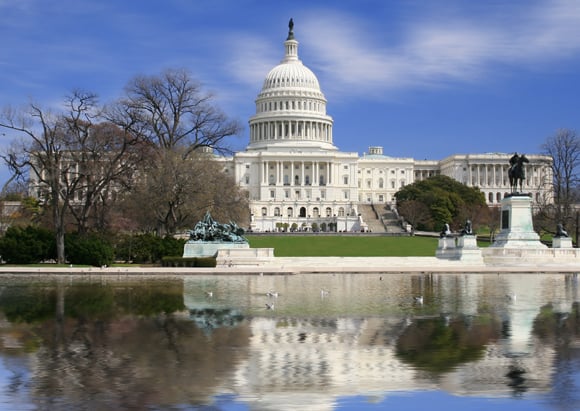Amid the financial crisis of 2008, ratings agencies were villified by press and public alike. But S&P's lowering of its credit rating outlook for Uncle Sam was hailed by some as a crucial step in getting lawmakers to do something about the crushing federal deficit. | <font color = blue>Benjamin: Run on Treasuries a flight to crazy</font>
The Standard & Poor's Rating Service “fired a shot across the bow” of Congress and President Obama this morning by announcing a negative outlook for United States' AAA debt rating.
“The national mood right now is one where people are expecting Washington to start dealing with the debt, and this [credit rating announcement] is an opportunity for the President and Congress to take some action,” said Robert Tipp, chief investment strategist of fixed income at Prudential Financial Inc.
The S&P report, which indicated there's a 33% chance the rating agency would downgrade U.S. debt in the next two years, acted as a tipping point for the equity markets, which were already bracing for a rough start to the day following negative news out of Europe.
“The stock market was already sliding [before the S&P announcement] because of overnight activity related to a debt restructuring in Greece and other lingering worries,” said Steve Van Oder, fixed income strategist at Calvert Asset Management Co.
From a fixed income perspective, Mr. Van Order said the swelling deficit is “not a new conversation.”
“I think it was a good thing that the ratings agency brought the issue to more of a public market,” he said. “But it didn't really surprise anybody in the bond markets.”
It might not have surprised veteran bond wonks, but that didn't stop Treasuries from bouncing around for most of the day, first rising on European debt concerns and then falling, before moving back to positive territory toward the end of the day.
As Mr. Tipp pointed out, the ratings announcement is less of an imminent threat of change in the nation's credit quality as it is a serious wake up call for lawmakers.
The United States has never lost its AAA credit rating, but the government is running a $1.5 trillion deficit and carrying $9 trillion debt, which adds up to a 60% debt-to-gross domestic product ratio.
“This is a consequential statement, given the extent to which the AAA rating contains borrowing costs for all of American society, but it also impacts the rest of the world which uses the dollar as a reserve currency and the most liquid bond markets in the world,” said Mohamed El-Erian, chief executive and co-chief investment officer at Pacific Investment Management Co. LLC.
“All this can be avoided if the U.S. were to converge on a common vision of medium-term fiscal adjustment and start implementing such a reform package,” he added.
Mr. Tipp saw the ratings announcement as something that lawmakers could leverage as a reason for fiscal restraint.
“Now they can use this as an outside force to justify making some difficult changes,” he said. “I would like to think this will be the most visible shove they will need, but time will tell.”







